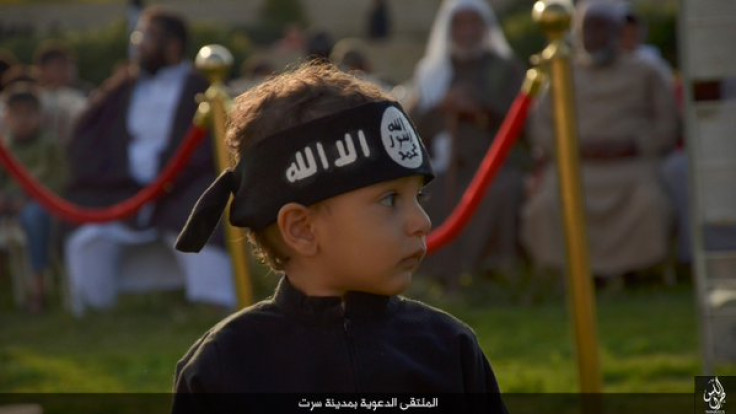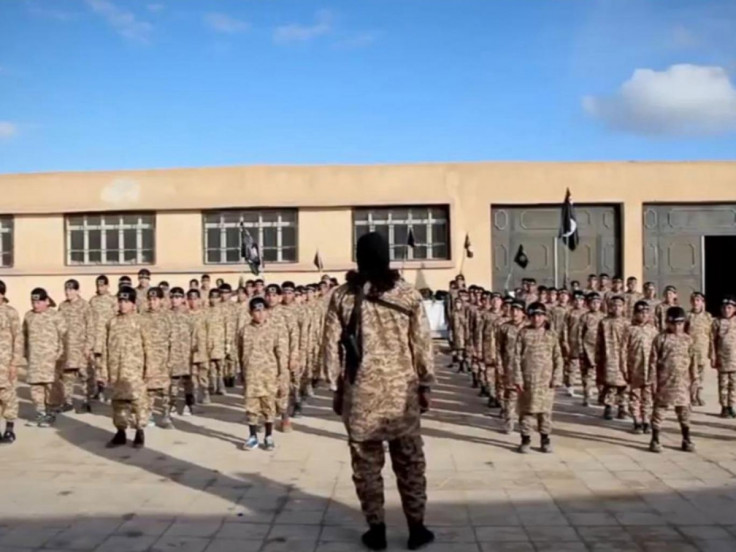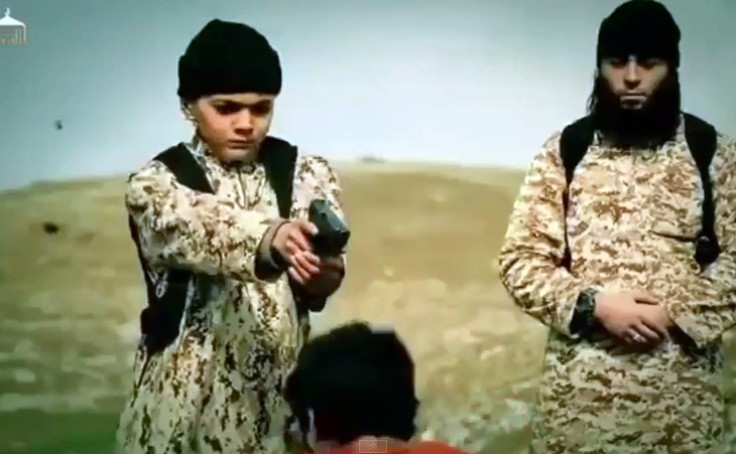Caliphate Cubs of Isis: Inside the dark world of Islamic State's cadres of child soldiers

Among the darkest and most disturbing pieces of propaganda disseminated by the Islamic State's (Isis's) media machine are the slew of posed photos, hate-filled proclamations and grisly beheadings featuring children from Iraq, Syria and now Libya – the Caliphate Cubs.
In their most recent offering, Daesh (IS) supplied footage of a twisted game of hide and seek. The children hunted through al-Rahba castle in Syria's Deir Ezzor province for hidden hostages. When they found the men, who were accused of being spies, the successful recruits were rewarded with execution privileges.
"It will have lifelong impact when you become indoctrinated - that becomes your norm. In your day to day life, your first response is violence because that's what you've become accustomed to knowing,"
- Adviser Erica Hall, World Vision
Boys of no older than eight dispatched the prisoners with handguns, shooting at point blank range to the approval of their supervisors. The brutal acts of violence, of a type which has become IS's calling card throughout the world, sit alongside a dozen other executions carried out by child soldiers.
Leaked IS documents have shown that the brainwashing of children and the use of child soldiers are a cornerstone of the militants' military vision. Along with the provision for the instruction of jihadi veterans and fresh foreign recruits, IS outlines the importance of child soldiers in its training camps.
Alongside training in jurisprudence and manners children are to be instructed in the use of light arms according IS's blueprint. The document also stipulates that "outstanding individuals" in the programme for child soldiers can be selected for special assignments.

IS states that education is its highest calling. In this instance education refers to "glorifying the ruling authorities and discarding differences between sects".
IS's front and centre use of child soldiers in its propaganda is without precedent in other conflicts where child soldiers have been used. Erica Hall, senior child rights policy adviser at World Vision, told IBTimes UK that while child soldiers might often appear willing participants in IS videos, they are more often than not motivated by fear and coerced into taking part.
READ MORE: Should we cease using Islamic State, Isis or Isil and begin using 'Daesh'?
IS fighters and leaders hate the word - it's an Arabic acronym of "al-Dawla al-Islamiya fi Iraq wa ash-Sham" – meaning the Islamic State of Iraq and al-Shams – but when spoken Daesh sounds similar to the Arabic words translating to "the sowers of discord" (Dahes) or "one who crushes underfoot" (Daes). IS threatened "to cut the tongue of anyone who publicly used the acronym Daesh, instead of referring to the group by its full name".
"There are instances of IS coming to houses and forcing parents to hand their children over. You also have situations where they are paying families, so in effect the children are forced to join but they are receiving a salary that goes to the family," she explained.
Child soldiers are used in conflicts throughout the world for a variety of reasons but predominantly because they are mentally pliable and still developing a sense of right and wrong. There are more child soldiers than ever before because of the wide proliferation of light arms. "You don't need a strong adult male to shoot these weapons," Hall said.
Whatever the reasons, the psychological effects on the child are devastating and play themselves out within wider society for years to come. "It will have a lifelong impact when you become indoctrinated – that becomes your norm. In your day-to-day life, your first response is violence because that's what you've become accustomed to knowing," she continued.

Child soldiers are more likely to rejoin armed groups in the future after they are effectively shunned by their communities. IS's desire to isolate its fighters from their communities is well documented. One of the children involved in the al-Rahba castle hostage shootings is identified as a Yazidi – a "former slave", according to IS's warped world view.
Hall said where in other conflicts organisations and the international community might put pressure on paramilitary organisations to release their child soldiers, there appeared to be no such option with IS.
"We are talking about an armed group that really does not care what the west or anyone else thinks, which is why they are very difficult to address on the issue of child recruitment. Other groups who are seeking legitimacy who are told they will not be recognised while they have kids in their ranks are more likely to move away from them," she said.
© Copyright IBTimes 2024. All rights reserved.






